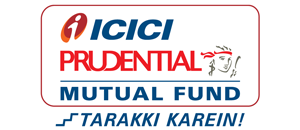Portfolio Management Service (PMS) is a professional financial service where skilled portfolio managers and stock market professionals manage your equity portfolio with the assistance of a research team. Many investors have equity portfolios in their Demat Account but managing them can be a challenge. PMS is a systematic approach to maximise returns while minimising the risk factor on your investments. It enables you to make sound decisions that are supported by extensive research and factual data without lifting a finger. Additionally, it better prepares you to deal with market adversity.
What are the types of portfolio management services?
There are four popular types of PMS which are explained in this section.
- Active Portfolio Management: The portfolio manager's primary goal is to maximise returns. In the Active Portfolio Management method, the portfolio manager attempts to reduce the risk of your investments by diversifying them across asset classes, industries, and businesses. When compared to the passive style, this results in a higher turnover.
- Passive Portfolio Management: This method focuses on fixed profiles that are in line with the current market trend. In this case, portfolio managers prefer to invest in index funds which grow passively over time with minimal intervention. They have a low turnover but offer reasonably good long-term returns.
- Discretionary Portfolio Management: The portfolio manager is entrusted with managing a specific portfolio in this method. Based on your objectives, risk tolerance, and investment duration, the manager selects an appropriate strategy that they believe is best suited to your portfolio. For example, portfolio managers may recommend equity-oriented funds to a risk-taking investor and debt-oriented funds to a risk-averse investor.
- Non-Discretionary Portfolio Management: In this method, the portfolio managers advise you on investing, but the final decision is yours. Once you give the go-ahead, the portfolio managers take the appropriate action on your behalf.
- Category I AIFs can invest in start-ups, early stage ventures, social ventures, SMEs and sectors which the government or regulators consider as socially or economically desirable. They include venture capital funds like angel funds, SME Funds, social venture funds, infrastructure funds and such other AIFs as may be specified.
- Category II AIFs are those which are not classified under Category I or Category III. They do not undertake leverage or borrowing other than to meet day-to-day operational requirements and as permitted in the regulations. Various types of funds such as real estate funds, debt funds, private equity funds, funds for distressed assets, etc. are registered as Category II AIFs.
- Category III AIFs are funds which employ complex or diverse trading strategies and may employ leverage including through investment in listed or unlisted derivatives hedge funds, PIPE Funds, etc. are registered as Category III AIFs.






